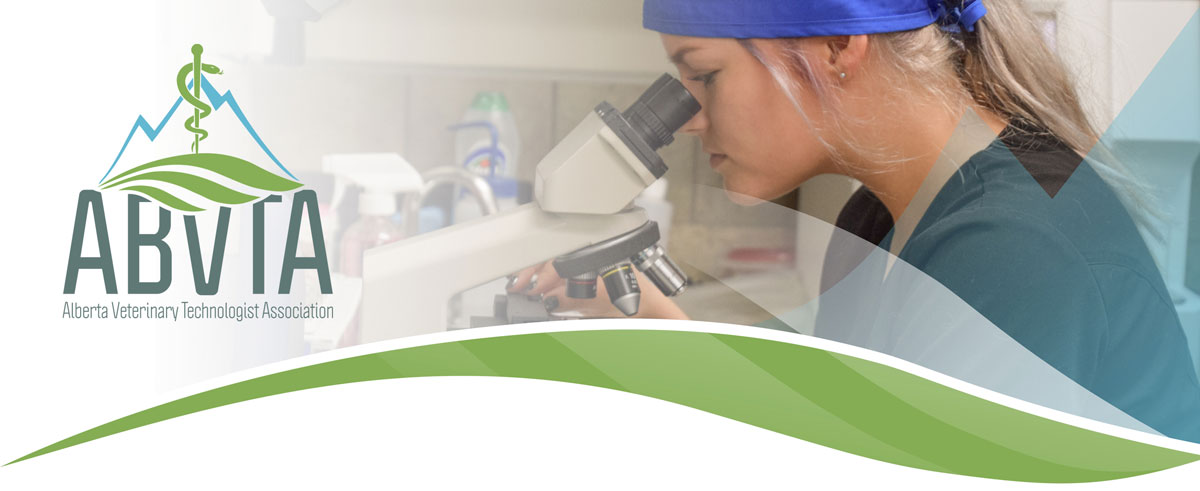As an RVT, long hours, emotional stress, and fast-paced environments can make it difficult to maintain balance in veterinary medicine. Protecting your time and well-being is essential for a fulfilling career as a Registered Veterinary Technologist (RVT).
Understanding the Challenges of Work-Life Balance in Veterinary Medicine
Your work as an RVT is more than a career choice; it is a professional responsibility that demands both technical skills and emotional resilience. The nature of the work means that you often face unpredictable caseloads, physically demanding shifts, and the emotional toll of caring for sick and injured animals and the distressed owners who love them. Over time, these factors can blur the line between professional dedication and personal well-being.
For many RVTs, long hours and shift work have become the norm. Days can start with a playful puppy vaccine appointment and end with the emotional strain of euthanizing a critically ill patient. This constant emotional swing, combined with the physical exhaustion of being on your feet for hours, handling large animals, or managing emergencies, wears down even the most resilient professionals.
That pressure often follows you long after the clinic doors close. You may carry a lingering sense of responsibility, replay cases in your mind, and question what more you could have done, even long after your shift is done. The idea of saying no to an extra shift or taking a real day off often comes with guilt or the worry of letting your team down. Without setting boundaries, it becomes nearly impossible to recharge both physically and emotionally.
Gigi Tsontos, Executive Director of Not One More Vet (NOMV), explains the emotional rollercoaster many veterinary professionals experience:
“You can start your day with a kitten and end your day with a harmed animal. It’s a very up-and-down space. Veterinary professionals go from moments of joy to moments of crisis within the same hour, and that emotional swing is not something most people outside the profession fully understand.”
You know this emotional duality well, it’s part of what makes your work meaningful, but it also makes it harder to step away when it matters most.
Strategies for Setting Boundaries
Creating boundaries is a professional skill that protects both mental health and long-term career satisfaction. For RVTs, this starts with open and proactive communication with employers. Discussing scheduling needs, identifying limits around overtime, and setting expectations for after-hours availability are necessary steps in maintaining balance.
Here are some practical strategies you can use to set and maintain boundaries:
- Declining non-urgent requests when needed: Saying no, especially when well-being is at risk, is not a sign of lack of care. It is part of ensuring that every patient receives care from a veterinary professional who is rested, focused, and able to make sound clinical decisions.
- Utilize earned time-off: Taking vacation days, personal time, or mental health breaks allows you to step away from the demands of your work setting and protect your emotional well-being. Whether it’s a full vacation or a quiet day to yourself, making space to reset and recharge helps you return with greater clarity, resilience, and the capacity to care for yourself and others.
- Establishing end-of-shift routines: Building an after-work routine can signal to both the body and mind that the workday is done and developing a consistent way to mentally separate work from home life can make all the difference. Include activities you’ll look forward to in your after-work routine, such as:
-
-
- going for a walk while listening to your favorite playlist
- preparing a tasty snack or a comforting meal
- unwinding with a pampering skin care routine
- practicing a simple breathing or relaxation exercise
- changing into cozy clothes to help shift into rest mode
-
The importance of work-life balance is well documented within the veterinary profession. The Merck Animal Health Veterinarian Wellbeing Study III, published in the Journal of the American Veterinary Medical Association (JAVMA), identifies work-life balance as the strongest predictor of overall well-being:
“Work-life balance is the number one predictor of high levels of well-being, low burnout, and good mental health. Veterinary professionals who reported better balance also reported lower rates of burnout, depression, and job dissatisfaction. Employers and individuals both have a role to play in creating work environments that support this balance.”
Protecting time outside of work is not only important for your own well-being, but also necessary to stay effective and engaged in your role long term.
Recharge and Reconnect: Everyday Self-Care Strategies for RVTs
Self-care is not selfish; it is an essential part of protecting both your physical and mental health. Long shifts, emotionally charged cases, and physically demanding work can all take a toll on your physical and mental well-being. Building small, intentional habits, both during and outside of your shift, can help reduce stress, improve focus, and support your long-term well-being.
Some self-care strategies include:
- Prioritizing Rest: Getting enough sleep is essential for staying focused and making sound clinical decisions. Consistent rest supports memory, mood, and physical recovery after long or physically demanding shifts. Sticking to a regular sleep schedule and creating a routine that helps you unwind at the end of the day can make it easier to fall asleep and stay asleep.
- Incorporate Movement: Long periods of standing, repetitive motions, or staying in one treatment area for hours can increase both physical tension and mental fatigue. Small actions like stretching different muscle groups throughout the day or going for short walks around the clinic can help reduce tension and improve mental focus. Even micromovements, like shoulder rolls or neck stretches, offer relief during busy periods.
- Practice Mindful Breaks: Taking quick, intentional pauses throughout the day can make a meaningful difference on both busy and quiet days. These moments help reset your focus, reduce stress, and support mental clarity. Mindful breaks can include:
practicing box breathing (inhale for four counts, hold for four, exhale for four, hold for four)
-
- doing a short, guided meditation or body scan
- grounding yourself through your senses (noticing what you can see, hear, feel, smell, or taste)
- petting an animal to soothe your nervous system and feel more present
- listening to a song that relaxes you or reminds you of a good memory
- take a moment to drink a glass of water mindfully and without distractions
RVT Tip: Small, consistent actions can have a lasting impact. Stretching between tasks, practicing calming breathwork after emotionally intense moments, or sticking to a steady sleep schedule are all simple ways to care for your mental and physical health.
Not One More Vet (NOMV) reinforces the importance of intentional self-care and emotional awareness:
“Prioritizing self-care, setting boundaries, and seeking support can help veterinarians avoid burnout while continuing to provide high-quality care to their patients. Veterinary professionals often feel pressure to put patient care and client needs ahead of their own health, but this mindset is not sustainable in the long term. Taking steps to care for yourself allows you to show up as the best version of yourself for both your team and your patients.”
Emotional Resilience: Managing Stress and Compassion Fatigue
Emotional resilience is a critical skill for RVTs who face both the physical and psychological demands of patient care. The ability to recover from difficult cases and emotionally charged situations does not happen automatically. It takes conscious effort and ongoing practice.
Here are some ways you can build emotional resilience in your work:
- Debrief with colleagues: Talking through difficult cases with team members provides an opportunity to process emotions, reflect on outcomes, and share coping strategies. Open conversations about stress and emotional workload can help normalize these experiences and reduce feelings of isolation.
- Access professional support: Confidential counseling and mental health support are available to RVTs through the ABVMA Member Assistance Program (MAP), delivered by GreenShield Canada. This program offers access to professional counselors and support services tailored to individual needs. Additional wellness tools, videos, and mental health resources are also available to ABVTA members through the Wellness Resources page in the member portal.
- Recognizing early warning signs: Identifying symptoms of burnout early can help you take action before it becomes overwhelming. Common signs to watch for include:
-
- chronic physical or mental exhaustion
- emotional numbness or feeling disconnected from your work
- increased irritability or frustration
- difficulty concentrating or making decisions
- loss of motivation or sense of purpose
- withdrawing from coworkers, clients, or loved ones
Paying attention to these early signs makes it easier to seek support, set boundaries, and prioritize recovery before the effects of burnout take a deeper toll.
Building emotional resilience does not mean eliminating stress; it means recognizing challenges early and having tools and support in place to manage them. Checking in with yourself, talking with a colleague, or accessing professional resources can all help protect your mental health and support your ability to stay engaged and effective in your role as an RVT.
Building a Supportive Workplace Culture
Workplace culture has a direct impact on your wellness and job satisfaction. Environments where stress, workload, and mental health are openly discussed often see stronger teamwork, lower turnover, and higher overall morale. Encouraging these conversations through regular team check-ins, staff meetings, or informal one-on-one discussions helps create a safe workplace where RVTs feel seen, heard, and supported.
Recognizing and celebrating team successes, both big and small, can also help build a sense of community. This might mean acknowledging a difficult case that was well managed, thanking someone for stepping in to cover a shift, or taking a moment to highlight day-to-day wins that often go unnoticed. These small efforts contribute to a stronger, more supportive workplace where RVTs feel valued and understood.
The importance of fostering this kind of environment is reinforced by findings from the Merck Animal Health Veterinarian Wellbeing Study III:
“A good practice climate was the most powerful predictor of good mental health and a high level of wellbeing for both veterinarians and support staff. Those working in practices with a good climate were more than twice as likely to have high levels of wellbeing and good mental health and about half as likely to experience serious psychological distress compared with those in practices with a poor climate.”
When leadership supports open communication, teamwork, and mental health awareness, the result is a stronger, more resilient team. A positive workplace culture is not just good for morale, it plays a direct role in supporting mental health, reducing burnout, and improving job satisfaction across the veterinary team.
RVT Tip: Want to spark positive change in your clinic? Share the 2024 Wage and Benefit Industry Summary Report with your employer. It’s packed with real data and practical insights to help strengthen veterinary teams, support RVT career growth, and improve overall job satisfaction.
You Deserve Balance
Veterinary medicine will always bring emotional and physical challenges. Long hours, and complex cases, but that doesn’t mean you have to sacrifice your own well-being in the process.
Protecting your mental and physical health is a necessary part of sustaining your ability to provide compassionate, high-quality care. By setting clear boundaries, practicing everyday self-care, accessing support, and contributing to a respectful and collaborative workplace culture, RVTs can maintain both their passion and their well-being.
Finding balance is not just about feeling better. It is about building a sustainable, rewarding career in animal health care while keeping the relationship you have with yourself healthy and thriving.
Sources:
- Not One More Vet (NOMV, March 2025): https://nomv.org/2025/03/10/veterinarian-work-life-balance/
- A-Z Animals (2024): https://a-z-animals.com/articles/how-not-one-more-vet-is-revolutionizing-veterinary-well-being/
- Merck Animal Health Veterinarian Wellbeing Study III (JAVMA, March 2025): https://avmajournals.avma.org/view/journals/javma/262/7/javma.24.02.0135.xml
This article was written by Madison Furness, Marketing and Communications Coordinator, Alberta Veterinary Technologist Association.

